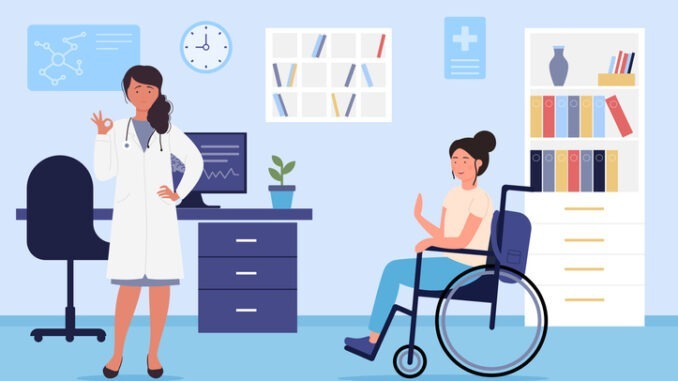
Getting a GP appointment is often a challenge, but for many disabled people, access to their GP has long been a problem – Deborah Fenney discusses the role of primary care in overcoming these challenges
CREDIT: This is an edited version of an article that originally appeared on The King’s Fund
In the King Fund’s recent project exploring disabled people’s experiences of involvement in health and care design, people told them about their experiences accessing health and care, as well as of involvement in service design.
Some participants described the significant difference a GP could make: those who made someone feel listened to and validated, compared with GPs who dismissed concerns or spoke to a person’s personal assistants rather than directly to them.
The experiences of people with communication needs in general practice are particularly stark – a recent review of the Accessible Information Standard highlighted that only half of this group had an accessible way to contact their GP. The review also found that more than a third of health professionals have never received training about this standard, despite it being a legal requirement for all NHS organisations since 2016.
Poor experiences trying to access primary care can lead to people giving up on engaging with health care, with all the risks that entails. It’s vital that we tackle ableism in health care – so what can GPs do?
To read the full version of this blog head to The King’s Fund website.



Be the first to comment